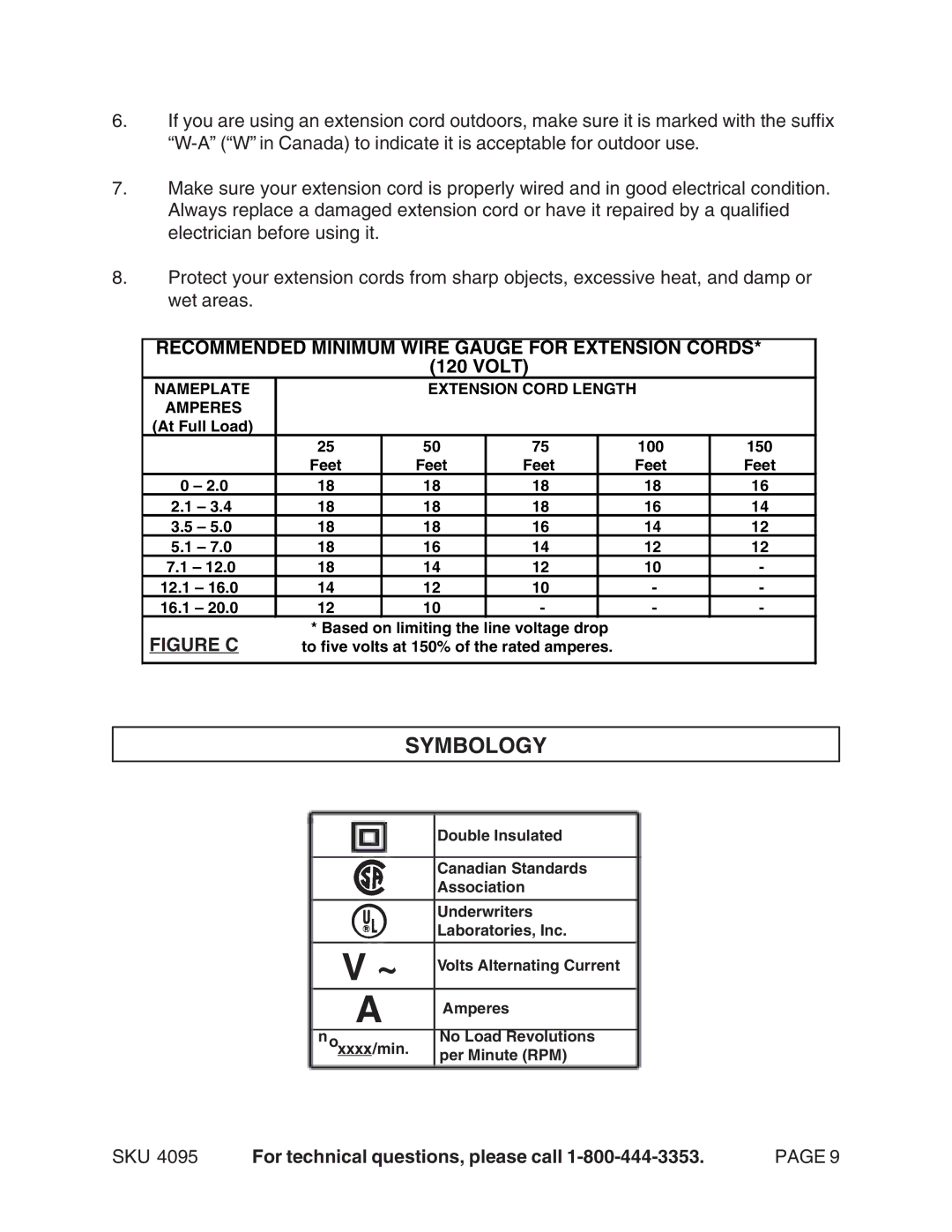
6.If you are using an extension cord outdoors, make sure it is marked with the suffix
7.Make sure your extension cord is properly wired and in good electrical condition. Always replace a damaged extension cord or have it repaired by a qualified electrician before using it.
8.Protect your extension cords from sharp objects, excessive heat, and damp or wet areas.
RECOMMENDED MINIMUM WIRE GAUGE FOR EXTENSION CORDS* (120 VOLT)
NAMEPLATE |
| EXTENSION CORD LENGTH |
| |||
AMPERES |
|
|
|
|
|
|
(At Full Load) |
|
|
|
|
|
|
| 25 | 50 | 75 |
| 100 | 150 |
| Feet | Feet | Feet |
| Feet | Feet |
0 – 2.0 | 18 | 18 | 18 |
| 18 | 16 |
2.1 – 3.4 | 18 | 18 | 18 |
| 16 | 14 |
3.5 – 5.0 | 18 | 18 | 16 |
| 14 | 12 |
5.1 – 7.0 | 18 | 16 | 14 |
| 12 | 12 |
7.1 – 12.0 | 18 | 14 | 12 |
| 10 | - |
12.1 – 16.0 | 14 | 12 | 10 |
| - | - |
16.1 – 20.0 | 12 | 10 | - |
| - | - |
FIGURE C | * Based on limiting the line voltage drop |
|
| |||
to five volts at 150% of the rated amperes. |
|
| ||||
SYMBOLOGY
V~
A
Double Insulated
Canadian Standards Association
Underwriters
Laboratories, Inc.
Volts Alternating Current
Amperes
no | No Load Revolutions |
xxxx/min. | per Minute (RPM) |
|
SKU 4095 | For technical questions, please call | PAGE 9 |
